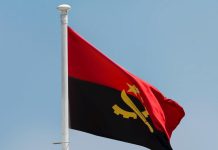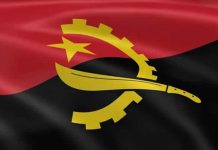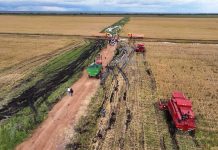Africa-Press – Angola. An Angolan delegation participates in the 18th Plenary Meeting of the Kimberley Process, taking place from tomorrow to Friday, in Gaberone, Republic of Botswana, in face-to-face and virtual format.
Representatives from 85 countries of the International Certification System of the Kimberley Process (SCPK) participate in the meeting in which the Angolan delegation led by the executive coordinator of the National Commission of the Kimberley Process (CNPK), Paulo Mvika.
A press release quoted by the agency indicates that the opening session of the meeting is led by the President of Botswana, Mokgweetsi Eric Keabetswe Masisi.
The meeting will serve for the discussion and evaluation of the annual reports presented by the heads of the working groups and committees, with emphasis on the analysis of diamond production and export statistics from the countries participating in the Process.
The agenda includes the scheduling of visits and evaluation missions of the Kimberley Process, approval of the Terms of Reference on the creation of the Ad-hoc Committee of the New Cycle of Review and Reform of the Kimberley Process, as well as the selection of a new president and a vice president.
Currently, Botswana assumes the presidency of the organization, with Zimbabwe as vice president. In this plenary, Botswana passes the witness to Zimbabwe, which assumes the presidency for the 2023 term.
Meanwhile, for the vice presidency of the 2023 term, the United Arab Emirates (UAE) and Belarus have applied.
The organization plans to deploy the Permanent Secretariat in China and Botswana, according to information in the note cited by the agency.
The Kimberley Process Certification Scheme is a tripartite coalition of governments, industry and civil society dedicated to eradicating conflict diamonds from world trade.
Created in 2003, the body aims to prevent the financing of weapons in African countries in civil war. In 2000, new countries accepted the Kimberley Process, committing to acquire only certified rough diamonds (with provenance confirmed by an official certificate) and to refuse imports from conflict areas.
For More News And Analysis About Angola Follow Africa-Press






